The Falkirk search for Mr Churchill’s Secret Army
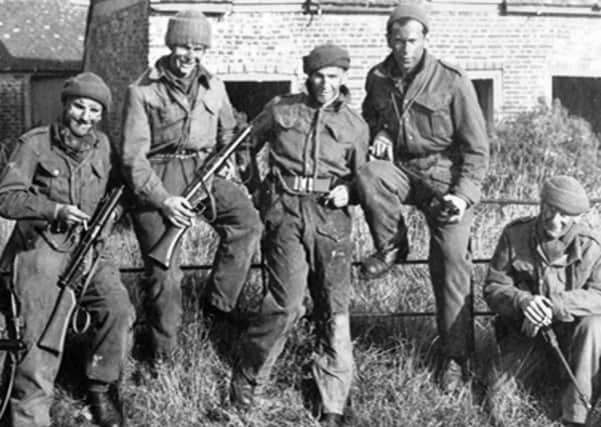

Everyone has heard of “Dad’s Army” - the Home Guard volunteers who for a time played an important role in Britain’s civil defence - but the blandly-named Auxiliary Units, an underground resistance force, were deadly saboteurs and assassins.
Hot on their trail is Falkirk man Jamie Biddulph, who besides his career as a movie combat expert (most recently in Outlaw King) runs an independent movie company, Rogue Film Lab.
Advertisement
Hide AdAdvertisement
Hide AdHis aim is to commemorate these unknown soldiers in a drama-documentary.
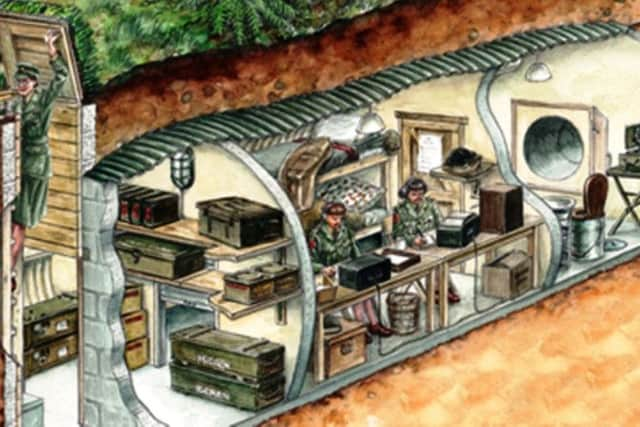

Ever since he found that the initial Scottish headquarters of the Auxiliaries was “near Falkirk” he’s been determined to find out more.
He’s also hoping - while conceding it’s a long shot - that some local resident of the wartime generation may have some vital clue to pass on.
Down south the Auxiliaries were based at Coleshill House near Swindon, and their activities have inspired museums, re-enactment groups and videos galore.
Advertisement
Hide AdAdvertisement
Hide AdIn Scotland the picture is far less clear, but the man charged with organising them is known to have started with an HQ base in this area before apparently relocating to Melville House in Fife at a later date.
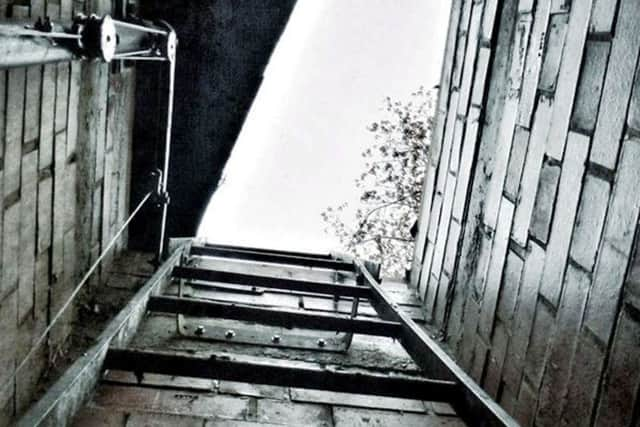

Jamie says two local sites are hot contenders for could-be Falkirk (or Grangemouth) bunkers.
The Auxiliaries, unlike most Home Guard volunteers, were the sort of people who would later be used in “Black Ops” against the Germans - and Japanese.
They often went on to serve with SOE, or with the SAS and (in Burma) the Chindits.
Advertisement
Hide AdAdvertisement
Hide AdThey were anonymous, fully prepared to die fighting, and were trained to kill without hesitation.
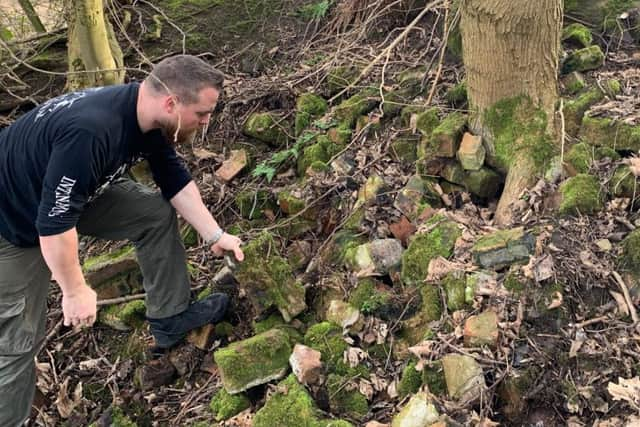

The story about how they were established is complex, but Winston Churchill - who had pioneered the use of military “hit men” in the Great War - was the inspiration.
Later in the Second World War he used people of this calibre to “set Europe ablaze”, in countries including Poland, Norway, Greece, the Netherlands, France, Czechoslovakia and the former Yugoslavia.
But in 1940, following the evacuation from Dunkirk, the objective was simple survival.
Advertisement
Hide AdAdvertisement
Hide AdHitler was poised to invade, and the regular forces available on British soil had little chance of stopping him - if the Germans managed to cross the Channel.
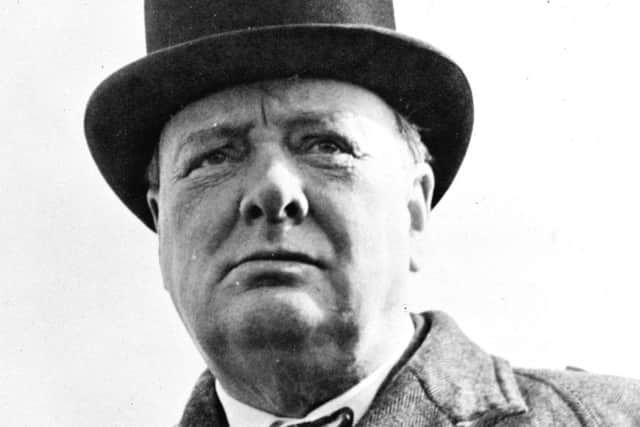

While Britain rallied her home forces, and those of the Free Poles, the Dominions and colonies, the Auxiliaries - completely unknown to the general public - were set in motion.
They were literally an underground army, charged with disappearing into secret bunkers in the event of an invasion.
Once the Nazis had taken over they were to launch sabotage and assassination missions, of the type which the Poles managed so successfully (but at terrible civilian cost) during their heroic resistance.
Advertisement
Hide AdAdvertisement
Hide AdArmed with a miscellany of lethal hardware and explosives these were no “have a go heroes” but committed, ruthless killers.
As in Poland and so many other occupied countries the Germans would have exacted savage revenge on defenceless civilians, but, again as in Poland, that would not have deterred the resistance fighters in the slightest - it was total war.
Jamie has discussed the local aspect of the secret army with Falkirk historian and archaeologist Geoff Bailey, and concludes that the two most likely local sites for their activities are in Larbert and Beancross.
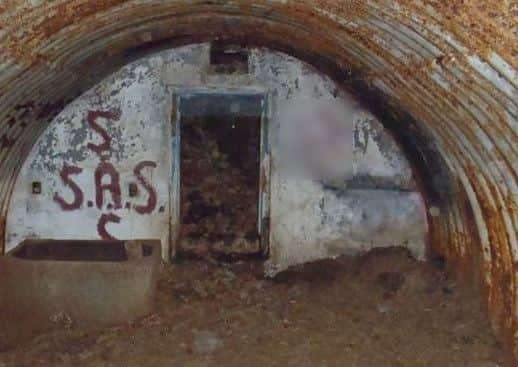

“Once activated they would have stayed in their hidden bunkers for two weeks while the Germans effectively walked right over them”, said Jamie.
Advertisement
Hide AdAdvertisement
Hide Ad“They would then reappear behind enemy lines to destroy as much as they could.
“Once these men started their partisan activities they would have a life expectancy of just two weeks.
“There were hundreds of these units based all over Britain with just over 100 in Scotland.
“The Scottish units were staffed by over 650 men, who for the most part came from the local areas, and that local knowledge would have been crucial”.
Advertisement
Hide AdAdvertisement
Hide AdHe adds: “There are no official recorded bases in Falkirk, but the man who set up the Auxiliary Units in Scotland, Captain. Eustace Maxwell, did set up his first HQ here before relocating to Melville House in St Andrews.
“After visiting the most likely local sites there is a lot of evidence which favours Beancross as an Observation Base”.
If the whole subject sounds fanciful we only have to look at Corstorphine Hill, outside Edinburgh, where until recent times few had any idea that underground lay a secret Cold War bunker complex - in which assorted local authority figures would have hidden themselves during a nuclear war.
It is still there, and continues to fascinate tourists - but meanwhile the remains of many Second World War Auxiliary Unit bases have yet to be uncovered.
Advertisement
Hide AdAdvertisement
Hide AdJamie said: “When activated, these men would have disappeared in the middle of the night never to be seen by their loved ones again.
“They were trained in guerrilla warfare and had pre planned targets. Airfields, ammunition depots and transport links were to be destroyed.
“Also any known collaborators with the invading Germans (even people they might know well) were to be assassinated”.
It never did happen here, because the Luftwaffe lost the Battle of Britain, but in the dark days of 1940 it seemed all too possible.
Advertisement
Hide AdAdvertisement
Hide AdJamie adds: “I want to make a film dedicated to the hundreds of men who would have laid their lives on the line for this country, who have received next to no recognition - and any help Falkirk Herald readers can give me, no matter how slight, will be very welcome”.
If you or a relative has information you can contact him at [email protected]